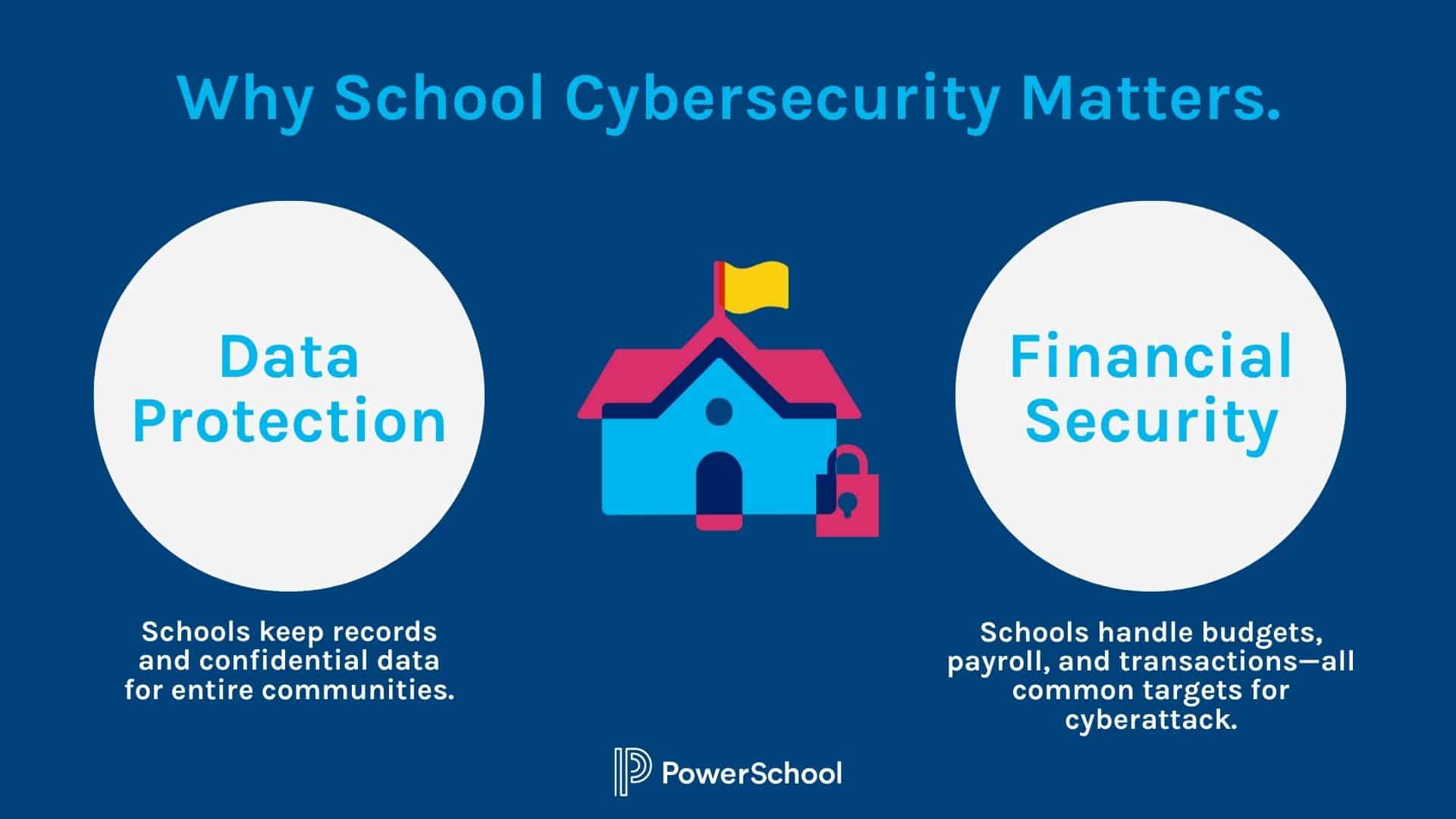Cybersecurity is an increasingly important field in today’s digital landscape. As technology advances, so do the methods and techniques used by cybercriminals to steal sensitive information and cause harm to individuals and organizations. This has led to a growing demand for skilled professionals who can protect against these threats and mitigate potential risks.
Toc
For those interested in pursuing a career in cybersecurity, choosing the right school or program is crucial. Not only does it provide a foundation of knowledge and skills, but it also serves as a launching pad for future opportunities in this rapidly evolving industry.
In this guide, we will explore some of the top cybersecurity schools that are training the defenders of tomorrow. These schools have not only proven their excellence in academics, but also have a reputation for producing highly skilled and sought-after graduates.
Introduction to Cybersecurity Schools

In today’s digital landscape, cybersecurity is paramount. With the increasing frequency of cyberattacks and data breaches, the demand for skilled cybersecurity professionals has never been higher. Aspiring IT professionals looking to make a significant impact in this field must start with a strong educational foundation. This article will guide you through the best cybersecurity schools that are shaping the defenders of tomorrow.
Who do Cybersecurity Schools teach?
Cybersecurity schools teach a diverse group of students, ranging from recent high school graduates with a passion for technology to seasoned professionals seeking to upskill or transition into a new career. These institutions provide an array of programs that cater to different experience levels, ensuring that each student can find a course of study tailored to their needs. In addition to technical expertise, students also learn about the legal, ethical, and managerial aspects of cybersecurity, preparing them to handle complex real-world scenarios with a holistic approach.
Criteria for Evaluating the Best Cybersecurity Schools
When choosing a cybersecurity school, several critical factors should be considered to ensure you receive top-notch education and training. Here are the key criteria:
- Accreditation: Ensure the school is accredited by recognized bodies. Accreditation guarantees that the institution meets specific educational standards.
- Curriculum: Look for comprehensive programs that cover various aspects of cybersecurity, including network security, ethical hacking, cryptography, and information assurance.
- Faculty: Experienced and knowledgeable faculty members who are actively engaged in the cybersecurity field can provide invaluable insights and mentorship.
- Facilities: State-of-the-art labs and resources for hands-on training are essential for practical learning and skill development.
- Industry Partnerships: Connections with leading cybersecurity organizations can offer internship opportunities, real-world projects, and job placement support.
- Career Opportunities: Look for schools that have a high job placement rate and a strong alumni network in the cybersecurity industry.
- Flexibility: For those who are already working or have other commitments, flexibility in course offerings is crucial. Look for online or part-time options to accommodate your schedule.
Job Opportunities after Graduating from Cybersecurity Schools

Graduating from a top-tier cybersecurity school opens up a wide array of job opportunities across various sectors. The skills and knowledge gained through these programs prepare graduates for several high-demand positions, including:
Information Security Analyst
Information Security Analysts are tasked with protecting an organization’s computer systems and networks. They frequently monitor systems for security breaches, install and configure security software, and devise strategies to mitigate potential vulnerabilities. This role is critical in ensuring the security and integrity of data within an organization.
Penetration Tester
Often known as ethical hackers, Penetration Testers proactively test the security of systems, networks, and applications by attempting to exploit vulnerabilities. Their insights and findings are essential in strengthening an organization’s defenses against malicious attacks.
Security Consultant
Security Consultants provide expert advice on a wide range of security issues. They assess security measures, recommend enhancements, and help develop policies and procedures to protect an organization’s data. Consultants often work with multiple clients, gaining broad exposure to different systems and security challenges.
Cybersecurity Engineer
Cybersecurity Engineers design, implement, and maintain secure network solutions to protect IT infrastructure and data. Their work involves creating robust security architecture, researching new security technologies, and responding to security incidents.
Chief Information Security Officer (CISO)
The CISO is a senior-level executive responsible for developing and implementing an information security program. This program includes procedures and policies designed to protect enterprise communications, systems, and assets from both internal and external threats. The CISO plays a critical role in aligning security initiatives with business objectives.
Incident Responder
Incident Responders, or Cybersecurity Incident Response Analysts, act swiftly to manage and mitigate the repercussions of security breaches. They analyze incidents to understand their impact and develop strategies to prevent future occurrences. Their role is vital in minimizing damage from cyberattacks and restoring normal operations quickly.
Cyber Forensics Analyst
Cyber Forensics Analysts investigate cyberattacks and security incidents, often working closely with law enforcement agencies. They collect, analyze, and preserve digital evidence to understand how breaches occurred and to support legal proceedings.
Benefits of Cybersecurity Schools Graduation

Graduating from a cybersecurity school offers numerous benefits that extend far beyond job placement. A comprehensive education in cybersecurity equips students with a deep understanding of both the theoretical and practical aspects of the field, providing a well-rounded foundation for a successful career. Here are some of the key benefits:
Competitive Edge in the Job Market
With a recognized degree or certification from a top cybersecurity school, graduates stand out to employers. The rigorous training and hands-on experience gained during the program signal to potential employers that the candidate possesses the necessary skills to handle complex cybersecurity challenges.
High Earning Potential
Cybersecurity professionals are in high demand, and this demand translates into impressive salaries. Graduates can expect competitive compensation packages that reflect their specialized skill set and the critical importance of their role in protecting organizational assets.
Bài viết liên quan:
Continuous Learning and Professional Development
The field of cybersecurity is dynamic and constantly evolving. Cybersecurity schools emphasize continuous learning, ensuring that graduates stay up-to-date with the latest threats, technologies, and regulatory requirements. This commitment to lifelong learning provides a solid foundation for career advancement and specialization.
Networking Opportunities
Cybersecurity schools often foster strong connections with industry professionals, alumni, and organizations. These networks provide invaluable opportunities for mentorship, internships, collaborative projects, and job placement. Building relationships within the cybersecurity community can also lead to career growth and new opportunities.
Contribution to Society
Graduates of cybersecurity schools play a crucial role in safeguarding digital environments. By protecting sensitive information and defending against cyber threats, these professionals contribute to the overall safety and stability of society, making a meaningful impact on the world.
Personal Growth and Confidence
Pursuing and completing a cybersecurity program requires dedication, problem-solving skills, and resilience. The challenges faced and overcome during the course of study build confidence, instilling a sense of accomplishment and readiness to tackle real-world cybersecurity issues.
Top 5 Cybersecurity Schools in US 2024

1. Carnegie Mellon University
Carnegie Mellon University in Pittsburgh, Pennsylvania, is renowned for its solid computer science and engineering programs, including its top-rated cybersecurity curriculum. The university’s Information Networking Institute (INI) offers a Master of Science in Information Security, focusing on technical, managerial, and policy aspects of cybersecurity. Students benefit from hands-on experience in world-class labs, access to leading cybersecurity faculty, and strong industry connections providing excellent internship and job opportunities.
2. Stanford University
Stanford University in California is another leading institution in cybersecurity education. Their interdisciplinary program emphasizes computer science and engineering principles with a robust cybersecurity component. The advanced research facilities, collaboration with Silicon Valley companies, and a renowned faculty team create an enriching learning environment for aspiring cybersecurity professionals. Students can engage in groundbreaking research and gain insights into the latest industry trends and technologies.
3. Massachusetts Institute of Technology (MIT)
MIT, located in Cambridge, Massachusetts, offers a comprehensive cybersecurity program through its Computer Science and Artificial Intelligence Laboratory (CSAIL). MIT’s cybersecurity curriculum is rigorous, blending theoretical knowledge with practical applications. Students have access to cutting-edge research projects and state-of-the-art facilities, preparing them for high-level careers in cybersecurity. The program also emphasizes entrepreneurship, encouraging students to innovate and develop new solutions within the cybersecurity domain.
4. University of California, Berkeley
UC Berkeley’s cybersecurity programs are among the best in the nation. The university offers several specialized courses through its School of Information and the Electrical Engineering and Computer Sciences (EECS) department. Students are equipped with a thorough understanding of both the technical and policy aspects of cybersecurity. UC Berkeley’s location in the tech-centric Bay Area provides ample opportunities for industry partnerships, internships, and career placements in leading cybersecurity companies.
5. Georgia Institute of Technology
Georgia Tech, based in Atlanta, Georgia, is famed for its practical and research-oriented cybersecurity programs. The university offers various undergraduate and graduate degrees focused on cybersecurity through its School of Cybersecurity and Privacy. The curriculum is designed to address current cyber threats and security challenges, offering students hands-on experience in well-equipped labs. Industry partnerships and a strong alumni network support student advancement into successful cybersecurity careers.
How to Prepare for a Career in Cybersecurity

Develop Technical Skills
Start building a solid foundation in key technical areas such as network administration, coding, and system architecture. Proficiency in programming languages like Python, C++, and Java can be particularly beneficial. Additionally, gaining expertise in network protocols, operating systems, and database management systems is crucial. These skills are fundamental in understanding how different components of IT infrastructure interact, helping you identify and mitigate potential vulnerabilities.
Gain Certifications
Certifications are a valuable asset in the cybersecurity field, demonstrating your knowledge and commitment to the profession. Some widely recognized certifications include Certified Information Systems Security Professional (CISSP), Certified Ethical Hacker (CEH), and CompTIA Security+. These credentials can enhance your resume and open doors to advanced positions. It’s also beneficial to stay updated with the latest trends and technologies through continuous learning and additional certifications.
Hands-On Experience
Practical experience is vital to a successful cybersecurity career. Engage in internships, co-op programs, or volunteer opportunities to get real-world experience. Participate in cybersecurity competitions and hackathons, which provide excellent platforms to apply your skills and learn from others. Building and managing your own lab environment at home can also help you practice various scenarios and respond to simulated cyber-attacks.
Networking
Networking with professionals in the industry can provide valuable insights, mentorship, and potential job opportunities. Attend industry conferences, join cybersecurity forums, and participate in local security meetups. Building connections with experienced practitioners can guide your career path and keep you informed about the latest developments in the field.
Customize Your Learning Path
The cybersecurity field is broad, encompassing numerous specializations such as penetration testing, incident response, and cyber forensics. Identify your interests and tailor your learning accordingly. Whether you’re pursuing advanced degrees, reading specialized literature, or following online courses, focus on building expertise in your chosen area to stand out in the job market.
Stay Current
The cybersecurity landscape is constantly evolving, with new threats and technologies emerging regularly. Stay informed by following industry news, subscribing to relevant blogs, and joining professional organizations such as the (ISC)² or ISACA. Regularly updating your knowledge ensures you are well-prepared to tackle new challenges and advance in your career.
Conclusion
Entering the field of cybersecurity requires dedication, continuous learning, and a proactive approach to professional development. By cultivating a robust technical foundation and seeking hands-on experiences, aspiring cybersecurity professionals can effectively prepare for the challenges of the industry. Networking and obtaining relevant certifications further underscore one’s commitment and expertise. A tailored learning path aligns with personal interests and industry demands, ensuring that individuals can carve out a successful and fulfilling career in this dynamic domain. Ultimately, staying current with the latest advancements and trends is crucial for long-term success and innovation in the ever-evolving world of cybersecurity.










